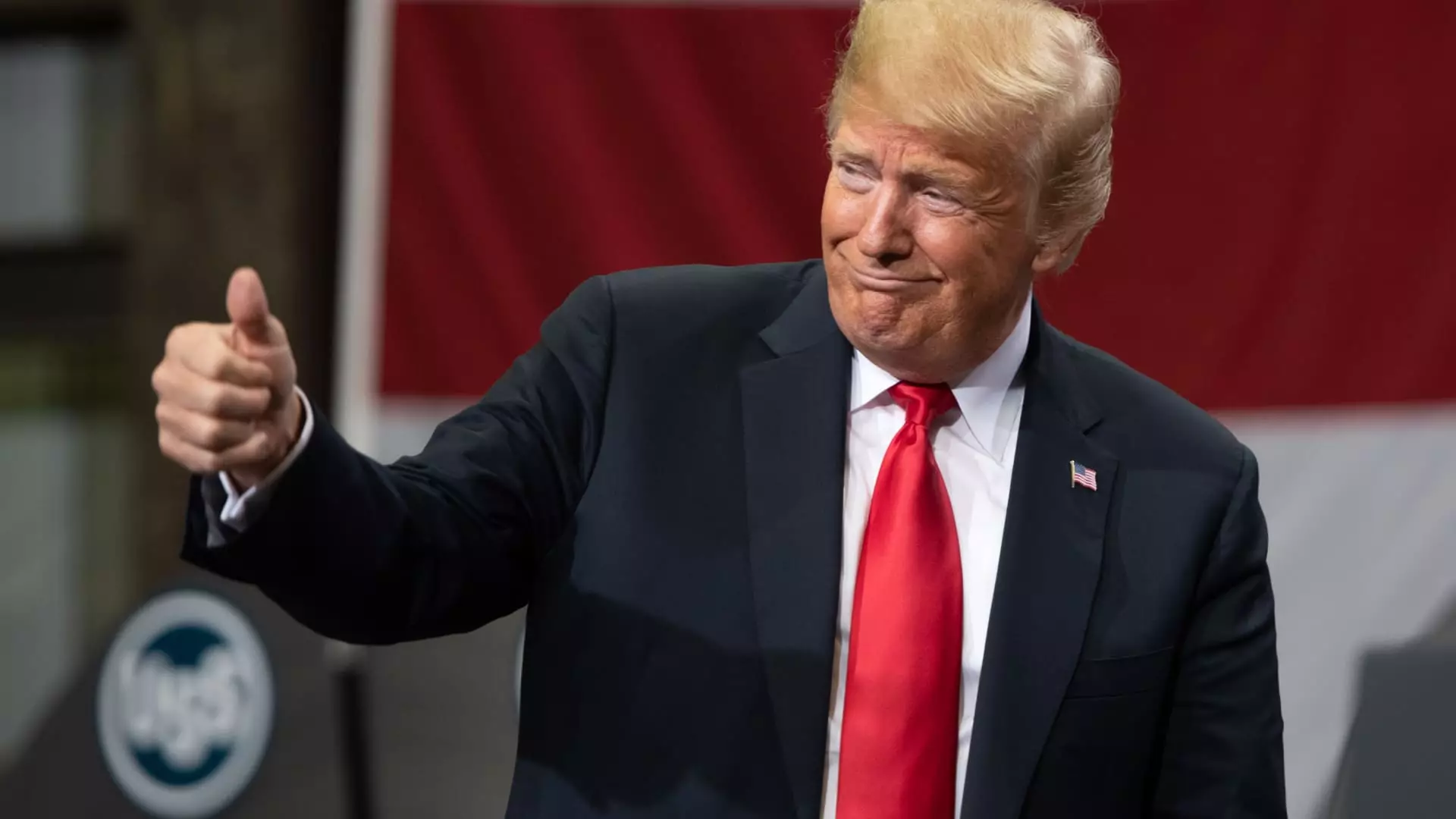The financial landscape has rarely been as volatile and unpredictable as it has been under the tenure of Donald Trump. His recent social media post advising followers to rapidly invest in stocks potentially demonstrated a unique intersection between politics and personal finance, ultimately leading to significant market gains for those who acted on his directive. At precisely 9:37 a.m. ET, as the stock market opened, Trump took to Truth Social with the enthusiastic proclamation that it was an opportune moment to “buy,” a remark that not only captured public attention but saw investors ride the waves of a market rebound. One cannot help but critique the potential ethical implications lurking behind such proclamations from a former president, especially given the stark context of his previous tariff announcements.
While the bullish sentiment might have initially been greeted with excitement, one must question how a political figure could exert such influence over financial markets. Trump’s casual remark prompted a significant upswing in stocks throughout the trading day, backtracking the market turmoil that had erupted just days prior due to his proposed import taxes. For the average investor, this might have felt like playing a high-stakes game of poker, where a mere tweet could transform fortunes in a matter of hours. But for seasoned investors and critics alike, it raises eyebrows over how intertwined political influence and market movement have become.
Numbers Don’t Lie: Profiting from Panic
The statistics reveal a staggering reality. For instance, those who took Trump’s advice and bought into the SPDR S&P 500 ETF Trust stood to gain an impressive return—nearly $1,110 back from a $1,000 investment at the moment when Trump’s post hit. With stocks soaring nearly 11% by day’s end, it’s evident that savvy investors leveraging insider-like knowledge could reap the rewards of such dramatic market swings. The question of ethics arises, however: was it wise investment strategy or thinly veiled market manipulation? Retail investors and seasoned traders alike were left debating these moral lines.
Similarly, the Trump Media & Technology shares surged significantly after he referenced his initials, affirming suspicions regarding the underlying motivations behind his impassioned post. For ordinary individuals who capitalized on this information, the situation could be viewed as pure luck or a golden opportunity, but is it fair to generalize that these gains arise from legitimate market behavior? Here lies the crux of the dilemma: the existing structure seems to favor those who can interpret the complexity of political influence effectively, while leaving the average, uninformed investor to pick up the pieces of a system skewed by the whims of the powerful.
The Broader Context: Tariffs and Uncertainty
While it is tempting to get swept away by the excitement of a major financial victory, it’s critical to understand the larger backdrop of Trump’s tariff strategies. For many economists, the challenging reality is that despite the immediate surge in stock values, the foundation of such growth remains shaky. The euphoria of a day’s trading does not erase previous losses; the S&P 500 was still down 3% from its values just a week earlier. The unpredictable nature of Trump’s policies creates an environment that is characterized by cyclic volatility rather than sustainable gains.
Moreover, a section of the investment community reacted to the situation with skepticism. Traditional platforms such as Reddit’s WallStreetBets echoed sentiments of distrust, with users voicing concerns about whether this was all a version of clever market manipulation posing as fiscal advice. Talk of potential insider trading surfaced, painting a picture of a financial realm where access to information can dramatically alter one’s financial stability.
Public Responsibility and Ethical Investing
Investors must ask themselves a few salient questions: Does profiting from politically influenced trades constitute ethical investing? And what happens when social media and retail democracies like Reddit’s WallStreetBets become viable platforms for market strategy? The integration of political figures into financial discourse continues to complicate moral landscapes: as they push us to act swiftly, who holds responsibility when the consequences of these actions spiral beyond financial gain into potential market destabilization?
The implications of Trump’s statements—whether intended or not—invite scrutiny of a capitalism that thrives under complexity where common investors sometimes seem like mere pawns on a larger chessboard. In the era of social media, this situation blurs the line dividing personal interest from social responsibility. In this unfolding drama of finance and politics, the weight of consequence rests heavily on the shoulders of both the investors who act on whims and the politicians who continue to leverage their platforms for influence.

